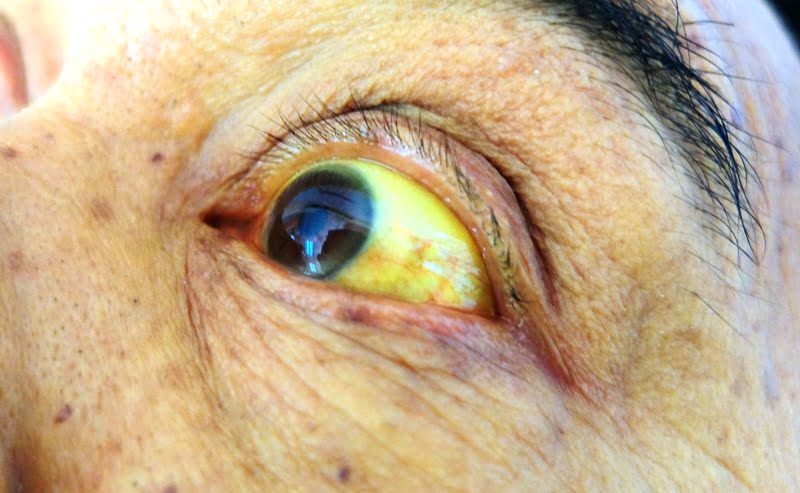Cortisol is a hormone produced by adrenal glands present above the kidneys. It is a chemical that helps in regulating our body functions. It also helps the body in regulating blood sugar levels and the responses to infection and stress.
A pituitary hormone ACTH (adrenocorticotropic hormone) increases the production of cortisol in the body. Overproduction of cortisol (Hypercortisolemia) in the body causes Cushing syndrome. Commonly, when a benign pituitary tumor (pituitary adenoma) produces an excess of ACTH, it results in Cushing’ disease in humans. Both Cushing syndrome and Cushing’ disease in humans affect women more often than men.
Cushing’s syndrome is most commonly caused due to long-term, high-dose use of the cortisol like glucocorticoids, used to treat other medical conditions like asthma, rheumatoid arthritis, and lupus.
There are different symptoms of Cushing syndrome such as weight gain, hump on the upper back, stretch marks on abdomen and thighs, easy bruising, hirsutism, irregular menstrual periods in women, sexual difficulties in men etc.
Cushing syndrome can be diagnosed by some characteristic body changes, hypertension, and diabetes. It can be confirmed by the presence of high cortisol levels in urine or saliva or with the help of some diagnostic tests for measuring the response to dexamethasone (glucocorticoid).
Cushing Syndrome Treatment
Some effective treatments for Cushing syndrome are to remove the tumor, to reduce its ability to make ACTH, or to remove the adrenal glands. There are other methods that may be used to treat some of the symptoms. For example, diabetes, depression and high blood pressure can be treated with the usual medicines used for these conditions. Sometimes, doctors prescribe additional calcium or vitamin D to prevent thinning of the bones. Some treatments commonly used for treating Cushing syndrome are discussed herein.
Pituitary Tumor Removal by Surgery
Removal of the pituitary tumor by surgery is one of the best ways to treat Cushing’s disease in humans. This is usually recommended for people who have a benign tumor of pituitary gland and who are well enough to have anesthesia. This is usually carried out by going through the nose or upper lip and through the sphenoid sinus to reach the tumor. This is known as transsphenoidal surgery and is less traumatic for the patient and allows quicker recovery.
Removing only the tumor leaves the rest of the pituitary gland intact so that it will eventually function normally. This surgery has a success rate of 70–90% when performed by the best pituitary surgeons. Sometimes, the tumor can return in up to 15% of patients, most likely because of incomplete tumor removal during the earlier surgery.
Radio surgery
Radio surgery is another option for treatment in which the tumor is seen on an MRI. This treatment may be used as the only and primary treatment option or it may be done as an additional procedure if the pituitary surgery is not completely successful. However, these approaches can take up almost 10 years to have a proper effect. Radiation therapy has a major side effect as it can affect other pituitary cells too that produce other hormones. As a result, almost 50% of patients need to take other hormone replacement therapies within 10 years of the treatment.
Surgical Removal of Adrenal Gland
One of the treatments of Cushing syndrome in humans is the removal of both adrenal glands which in turn reduces the body’s ability to produce cortisol. However, adrenal hormones are important for life and patients must then take a cortisol-like hormone and the hormone florinef, which will help in controlling body’s salt and water balance, every day for the rest of their life.
Drug Treatments
Some medications are used in combination with radiation therapy to reduce cortisol levels in the body. While some other promising drugs are being tested in clinical studies, currently available drugs used to reduce cortisol levels in the body, when given alone, do not work well for a long-term treatment.
Medications for Cushing’s syndrome
Cushing’s medications are used to regulate cortisol production in the body when surgery and/or radiation therapy are less effective. However, for patients with severe Cushing’s syndrome symptoms, medications are used prior to surgery and radiation treatment. This can help in controlling excessive cortisol production and also reduces risks during the surgery.
Commonly used medications for Cushing’s syndrome include:
aminoglutethimide (eg, Cytadren), ketoconazole (eg, Nizoral), metyrapone (eg, Metopirone), and mitotane (eg, Lysodren).
The doctor suggests which medication or a combination of medications is right for a particular patient. Different patients may require different medications for effective treatment.
Patients are also given medications after the surgery to remove a pituitary tumor or adrenal tumor. They are most likely given a cortisol replacement medication. This medication helps in providing the proper amount of cortisol in the body. An example of this type of medication is hydrocortisone (a synthetic form of cortisol).
Experiencing the full effects of the medication generally takes a year or longer. But in most cases and under doctor’s careful supervision, patients can slowly reduce the use of cortisol replacement medications because till then the body has become capable to produce normal cortisol levels again on its own. However, in some cases, people who have undergone a surgical removal of tumor causing Cushing’s syndrome won’t re-gain normal adrenal function, and therefore need a lifelong replacement therapy.
Cushing Syndrome Diet and Lifestyle
People with Cushing syndrome are at an increased risk for other health problems like bone loss, high blood pressure, diabetes, high cholesterol, sex hormone imbalances and more. Generally, cortisol stimulates the sympathetic nervous system of brain and decreases the digestive secretions, thereby making it hard to fully digest foods, absorb nutrients properly and go to the bathroom normally.
It has been found that a nutrient-dense and unprocessed diet can help patients with Cushing syndrome to prevent complications and ease symptoms by balancing hormones naturally, improving digestion and lowering inflammation. Consuming foods rich in calcium, vitamin D, vitamin K and magnesium is important for bone health. Avoiding intake of artificial ingredients, processed grains, caffeine, alcohol, sugar and sodium also helps. Some of the best foods useful in fighting the effects of high cortisol on the body include adrenal fatigue diet foods like:
- Healthy fats and omega-3 fatty acids, cold-water, wild-caught fish like salmon or sardines can be useful in reducing inflammation and stabilizing moods. Healthy fats support brain health and allow the body to make important hormones. Nuts/seeds, avocado, olive oil and coconut oil are also useful in Cushing syndrome.
- High Vitamin B foods are also useful in controlling the body cortisol levels because our body needs vitamin B for converting nutrients to energy and therefore supports brain functions. Foods rich in Vitamin B include raw or cultured dairy products, cage-free eggs, grass-fed beef, wild-caught fish, poultry, brewer’s yeast, and green leafy vegetables.
- Foods rich in minerals like calcium, potassium, and magnesium are useful in Cushing syndrome because electrolytes are natural muscle relaxers and important for overall health. They also help in reducing Cushing syndrome symptoms like headaches, trouble sleeping, aches, high blood pressure and more. Patients should consume more wild-caught salmon, unsweetened organic yogurt, beans/legumes, leafy green veggies, cruciferous veggies like broccoli, avocados, and nuts to prevent an electrolyte imbalance.
- Consuming high-protein foods can also be useful as they provide amino acids that are needed for proper neurotransmitter functions and also help in controlling appetite and fighting fatigue.
Life Style Modifications in Cushing Syndrome
Majority of people with Cushing syndrome suffer from symptoms of anxiety and depression. Therefore, they require a professional such as a therapist or counselor, and social support for coping with anxiety and other problems. One of the best ways to avoid stress naturally and feel happier is to connect with other people. One of the easiest ways to do this is to join online groups and forums, where one can learn about living with the condition and meet people facing similar situations.
According to some studies, patients who prefer working with a professional have found that cognitive-behavioral therapy (CBT) is one of the most effective ways of reducing stress. CBT includes “identifying sources of stress, changing one’s response to stress, restructuring priorities, and finding methods for managing and reducing stress.”
Stress and anxiety in Cushing syndrome patients can also be reduced with the help of exercise. Exercise helps in lowering the stress, maintaining the body’s cortisol and managing the body weight. Cushing syndrome is often associated with weight gain, muscle weakness, bone loss, and fatigue. All of these symptoms can be reduced with exercise naturally. Another benefit of exercise is that it’s an effective distraction from stressful events, blunts the harmful effects of blood pressure and protects the heart. Strenuous exercises can be harmful and interfere with hormones in a negative way. Patients should focus finding activities which they enjoy like including group classes, walking outdoors, swimming, cycling, lifting weights, yoga or Tai chi.
Patients with Cushing Syndrome should take a proper rest for avoiding too much stress. Getting adequate sleep helps in controlling cortisol and other hormones in the body. Improper sleep disturbs normal hormonal functions, increases cortisol, changes appetite, and can lead to chronic fatigue, weight gain, moodiness and other symptoms. If unable to sleep, patients should make it a priority to get seven to nine hours of sleep every night, ideally waking and going to bed around the same times every day.
Patients with Cushing Syndrome can further try the following methods to relieve their stress and anxiety and reduce cortisol levels.
Meditation
It is a natural way of reducing stress response without impairing alertness, concentration or memory. It is very easy to do from home and costs absolutely nothing. According to some recent studies mindfulness-based stress reduction (MBSR) techniques have been found effective stress relievers and result in significant reductions in stress levels in the majority of participants, while also helping in improving overall quality of life and possibly assisting functions of the hypothalamic-pituitary-adrenal.
Acupuncture
This method helps in decreasing pain, improving sleep and improving heart functions.
Hypnosis
It helps people with severe stress and can help alleviate symptoms like digestive problems, addictions and trouble sleeping.
Deep breathing exercises
Deep breathing exercises turn down the sympathetic nervous system and kick in the body’s natural relaxation response.
Massage therapy
A massage therapy helps in releasing oxytocin (a “feel good” hormone) and decreasing cortisol levels naturally while also decreasing pain and other symptoms of stress.
Natural Adaptogen Herbs
One of the natural treatments for Cushing disease in humans is utilizing adaptogen herbs which are completely natural and have been found to be useful in lowering cortisol by boosting body’s ability to deal with stress. Many other herbs also have energizing qualities, antioxidant effects, antidepressant effects, and can help naturally lower fatigue, blood pressure, and blood sugar levels. One should consult a doctor before using these natural herbs for treating Cushing’s disease though these plants have been used safely for thousands of years with little or no side effects. Following are some of the adaptogenic herbs that can help lower cortisol:
- Ashwagandha
- Astragalus
- Ginseng
- Licorice Root
- Holy Basil
- Medicinal Mushrooms, Including Reishi And Cordyceps
- Rhodiola
Some essential oils have also been found to be useful in fighting stress such as lavender, myrrh, frankincense, and bergamot. These oils are capable of lowering cortisol, reducing inflammation, improving immunity, balancing hormones, and helping with sleep and digestion.






